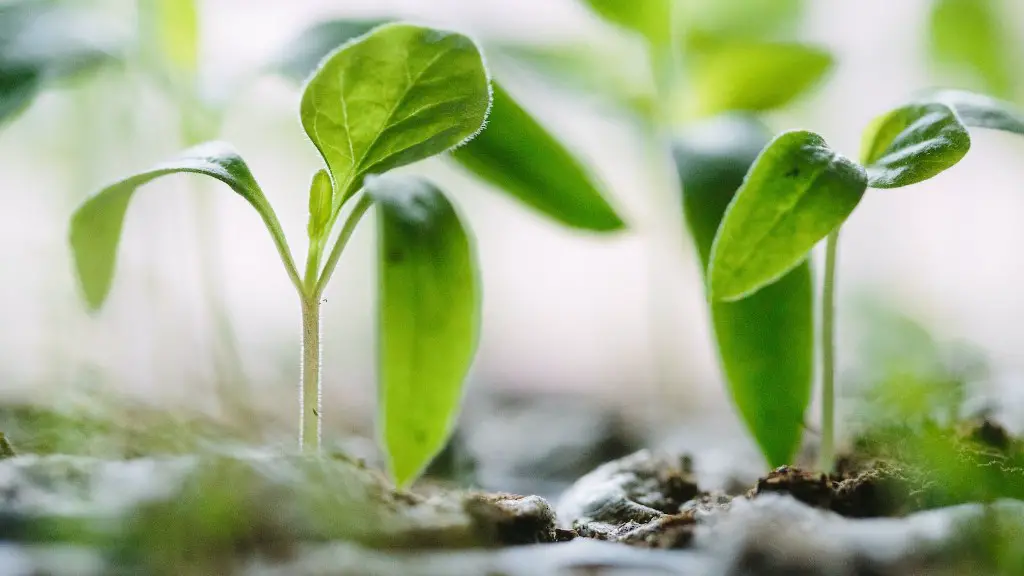Agricultural studies are defined as the science of producing food, feed, and other products by using plants and animals, as well as related sciences such as soil science and genetics. As part of this subject, it is important to understand what is biological in agriculture. Biological science covers various aspects of the production, processing, and maintenance of plants and animals for food, feed, and other products. This includes studying the life cycles of organisms and the interactions of organisms with their environment, the impact of diseases on agricultural systems, and methods to improve agricultural productivity. Many agricultural techniques rely on the usage of different types of animals, plants, soils, and microorganisms in production and management.
Organisms in Agricultural Systems
Understanding the behavior and life cycle of the organisms used in agricultural systems is essential for the successful application of biological science in farming. For example, plants and animals need to interact with their environment in order to grow and reproduce properly. They also need to understand the potential impact of diseases and climate change on their growth and health. Furthermore, studying how different organisms in farming interact with each other helps to understand how resources can be better used and how products can be improved.
On a larger scale, it is important to understand the ecosystem within an agricultural system. This ecosystem consists of the plants, animals, and the environment that they inhabit. By understanding this, farmers can better understand the changes they need to make to the environment in order to increase output and efficiency from their crops. Furthermore, it helps to improve the understanding of the food chain, which is essential in managing our resources for the future.
Tools & Techniques Used in Agriculture
Agricultural technologies are constantly evolving and the biological sciences are used to create more efficient and effective farming tools and techniques. Genetic engineering is one such technique that can be used to create crops that are more resistant to disease, pests, and other environmental changes. Organic production systems also use biological science to improve fertilizer use, soil fertility, and pest control. Other advances in technology include smart farming, which uses technologies such as remote sensing, drones, and climate-controlled equipment to optimize production processes.
In addition to the use of technology, biotechnology is also used in agriculture. This helps to reduce waste and increase productivity while improving yields and environmental sustainability. For example, the use of fermentation can lead to efficient food production while the use of disease-resistant plants can help to prevent crop losses.
Ultimately, the use of biological sciences in agricultural production helps to increase productivity and sustainability while reducing costs and environmental impacts. By understanding different animal and plant cycles, as well as the interactions between various organisms, it is possible to develop improved production techniques and crops.
Applications of Biological Science in Agriculture
Biological sciences can be applied to various aspects of agricultural production, from crop development to pest control. The use of biological science to improve crop yield is a major focus of agricultural research. Scientists are constantly working on developing new varieties of crops or improving existing varieties in order to increase crop yields and make them more resistant to diseases and pests. Other applications of biological sciences in agriculture include developing organic production systems and improving soil fertility.
In addition to the development of crops and the production systems, understanding the disease cycles of the various organisms that inhabit an agricultural plantation is equally important. By understanding the life cycle and behavior of these pests and pathogens, farmers can better manage their resources and reduce the incidence of diseases that can lead to crop losses.
Furthermore, genetic engineering and biotechnology can also be used in agriculture. Genetically modified organisms (GMOs) can be developed to reduce insect damage and improve crop yields. Biotechnology also helps reduce waste, improve fertilizer use, increase pest resilience, and improve soil fertility.
Impacts of Biological Science in Agriculture
The use of biological science in agriculture offers numerous advantages over traditional agricultural practices. The most notable of these is the increased production of crops and the increased efficiency of production processes. Furthermore, it has a positive impact on the environment, as plants and animals adapted to the environment through the use of biotechnology and genetic engineering can be more resilient to climatic changes and environmental stress.
In addition, the use of biological sciences in agriculture can help reduce the use of pesticides and herbicides, which are harmful both to the environment and to human health. These chemicals can be replaced with biological control agents, such as insects and bacteria, which can be beneficial for crop management. Furthermore, the use of biotechnology can help to increase soil fertility and water conservation.
Finally, understanding the life cycle of various organisms and the interactions between them can help to improve pest control and reduce the risk of disease. This is essential for the successful application of biological science in agriculture, as diseases can lead to crop losses and reduce yields.
Benefits of Biological Science in Agriculture
Overall, the application of biological science in agriculture has numerous benefits. By understanding the life cycles of organisms and the interactions between them, farmers can better manage their resources and optimize the use of fertilizers and pesticides. Furthermore, biotechnology and genetic engineering can be used to improve crop yields, reduce waste, and increase pest resistance. Finally, the use of biological science in agricultural practices can reduce environmental pressures and improve soil fertility.
The use of biological science in agriculture can help to increase food production while reducing environmental impacts. This can ultimately help to ensure global food security and reduce poverty levels across the world. In addition, understanding the behavior and life cycle of the organisms used in agriculture can lead to improved production systems and food quality.
Ultimately, the use of biological science in agriculture offers numerous benefits that can help to increase productivity, reduce waste, and improve the overall health of our environment. By understanding the life cycles of organisms and the interactions between them, as well as implementing biotechnology, genetic engineering, and organic production systems, it is possible to significantly improve agricultural production and sustainability.
Conclusion
In conclusion, understanding what is biological in agriculture is essential for the successful application of modern agricultural practices. By understanding the behavior and life cycles of organisms and the interactions between them, as well as using biotechnology, genetic engineering, and other modern technologies, it is possible to increase the productivity and sustainability of agricultural systems while reducing environmental impacts. Additionally, the use of these technologies and practices can help to ensure global food security and reduce poverty levels across the world.



